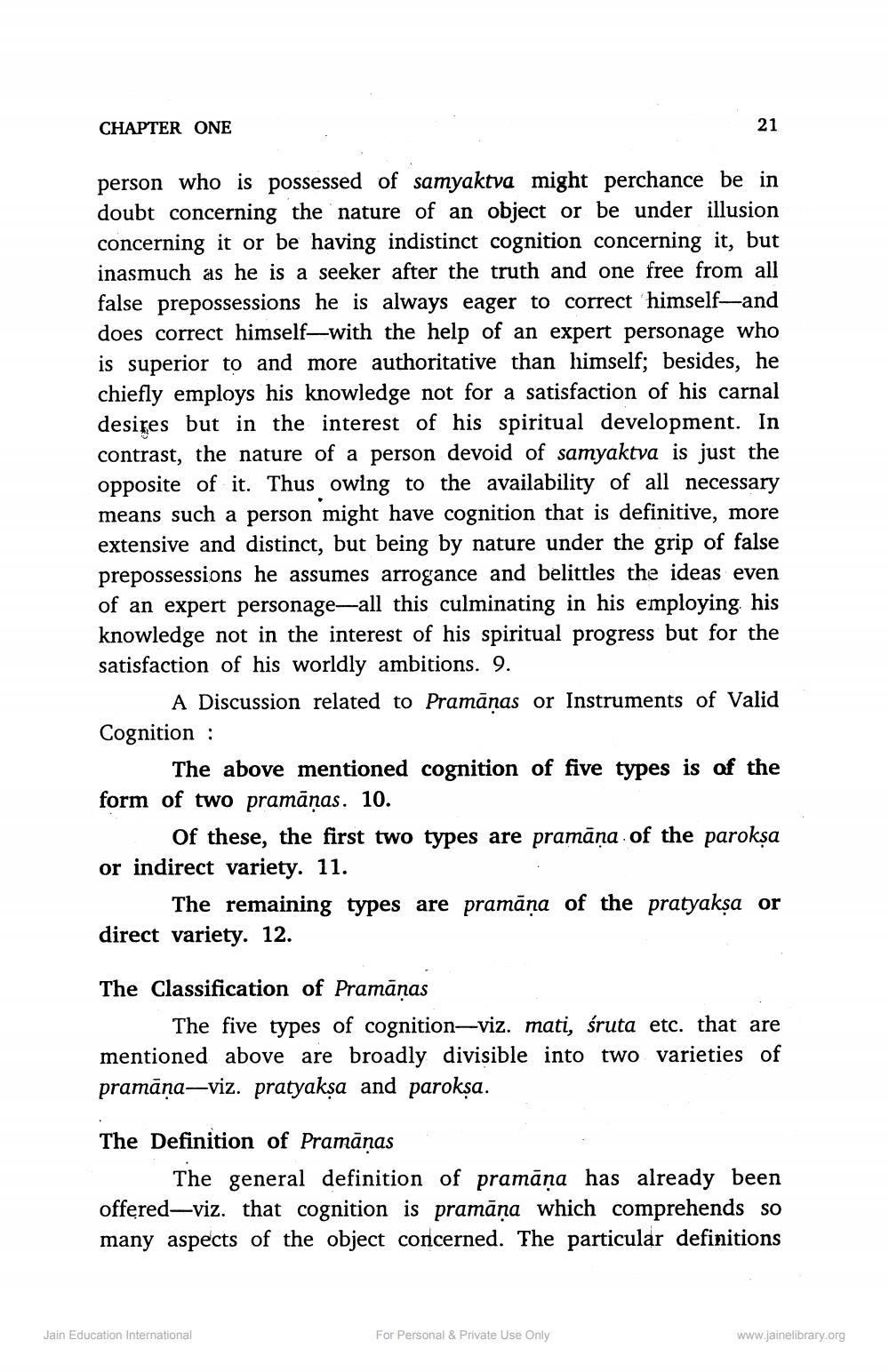________________
CHAPTER ONE
person who is possessed of samyaktva might perchance be in doubt concerning the nature of an object or be under illusion concerning it or be having indistinct cognition concerning it, but inasmuch as he is a seeker after the truth and one free from all false prepossessions he is always eager to correct himself-and does correct himself-with the help of an expert personage who is superior to and more authoritative than himself; besides, he chiefly employs his knowledge not for a satisfaction of his carnal desires but in the interest of his spiritual development. In contrast, the nature of a person devoid of samyaktva is just the opposite of it. Thus owing to the availability of all necessary means such a person might have cognition that is definitive, more extensive and distinct, but being by nature under the grip of false prepossessions he assumes arrogance and belittles the ideas even of an expert personage-all this culminating in his employing his knowledge not in the interest of his spiritual progress but for the satisfaction of his worldly ambitions. 9.
A Discussion related to Pramāņas or Instruments of Valid Cognition :
The above mentioned cognition of five types is of the form of two pramāņas. 10.
Of these, the first two types are pramāņa of the paroksa or indirect variety. 11.
271
The remaining types are pramāņa of the pratyakṣa or direct variety. 12.
The Classification of Pramanas
The five types of cognition-viz. mati, śruta etc. that are mentioned above are broadly divisible into two varieties of pramāṇa-viz. pratyakṣa and parokṣa.
The Definition of Pramāņas
The general definition of pramāṇa has already been offered-viz. that cognition is pramāņa which comprehends so many aspects of the object concerned. The particular definitions
Jain Education International
For Personal & Private Use Only
www.jainelibrary.org




